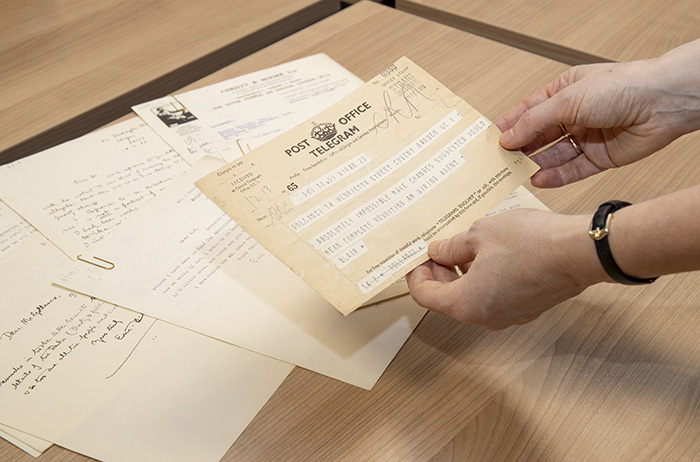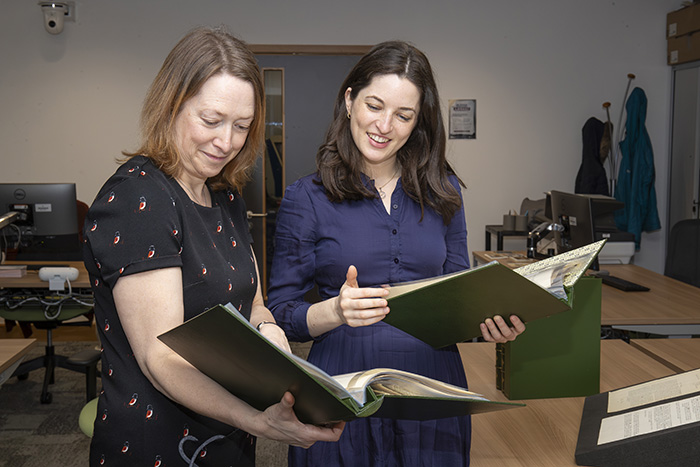
UCL acquires rare correspondence between George Orwell and his publisher
The collection was at risk of being sold to private owners. Now it will be preserved, cared for and secured for the public as a valuable piece of the UK’s cultural heritage.

Dating from between 1934 and 1937, the documents offer new insight into Orwell’s early literary relationships, his approach to publishing and his responses to criticism.
The letters reveal more about the publication of four of Orwell’s earliest published works: A Clergyman's Daughter, Keep the Aspidistra Flying, The Road to Wigan Pier and Inside the Whale.
Alongside funding from Friends of the Nations’ Libraries, The National Heritage Memorial Fund awarded £64,000 to support the acquisition of the historic correspondence.
Simon Thurley, Chair of the National Heritage Memorial Fund, said: “This fascinating archive provides a rare insight into the early career, influences and ideas that helped shape one of the UK’s greatest literary minds.
“The Memorial Fund exists to save the UK's finest heritage and create a timeless collection that belongs to us all, as a permanent memorial to those who have given their lives for the UK. We are delighted that the Orwell Archive is now part of that growing collection and will soon be available for all to enjoy.”
Revealing Orwell’s editing process
The documents shine a light on the relationship between the celebrated novelist, essayist and critic and Victor Gollancz, his original publisher and include observations on the politics of 1930s Europe that helped shape Orwell’s thoughts and ideas.
Gollancz’s libel concerns run throughout the letters, with the publisher often requesting that Orwell change names and details in his novels to reduce similarities with real people, places and companies.
Sarah Aitchison, Director of UCL Special Collections, said: “These fascinating letters reveal the editing process behind Orwell’s published works and the legal anxieties that spurred these amendments, but they also offer valuable insight into George Orwell’s development as a writer during these formative inter-war years.”

A freely accessible archive
These letters will now join the Orwell Archive in UCL Special Collections, which features manuscript notebooks, diaries, letters and other personal papers, and photographs belonging to the author.
Once catalogued, UCL will display these illuminating documents for the first time at The Orwell Festival (27 May – 25 June 2025), an annual series of events, hosted by The Orwell Foundation.
The documents will then be made freely accessible to students, researchers and the public through the UCL Special Collections reading rooms in central London and online on the Digital Collections webpages.
Explore the Memorial Fund collection
Discover some of the other heritage treasures we've helped preserve in our project archive.

